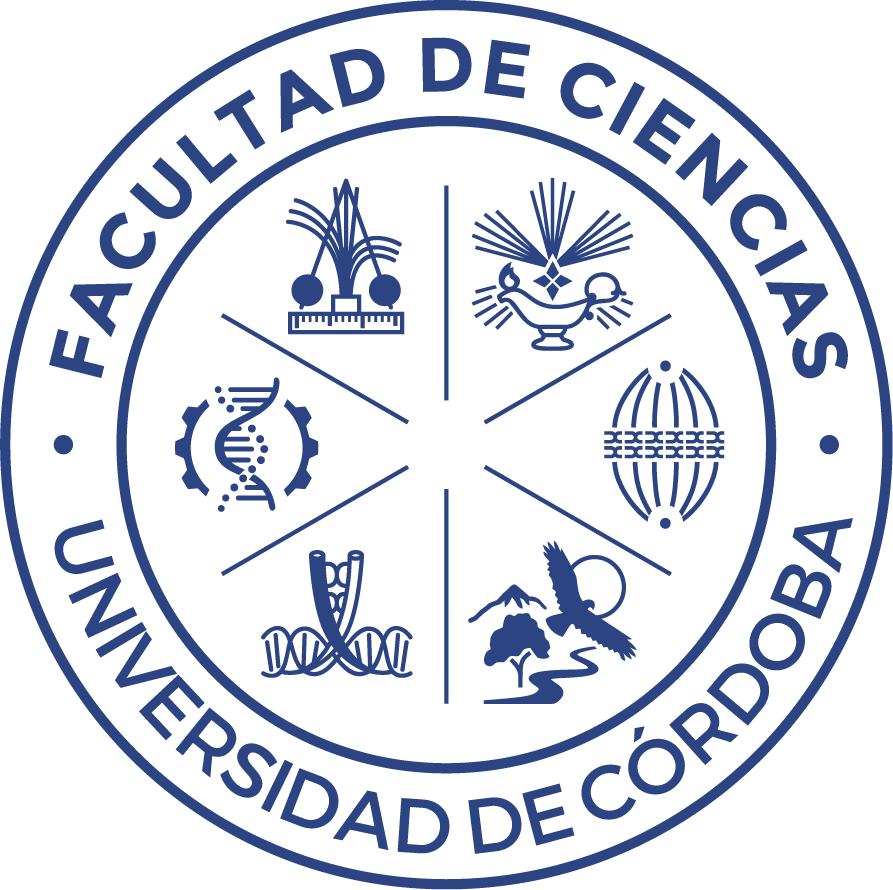Dean
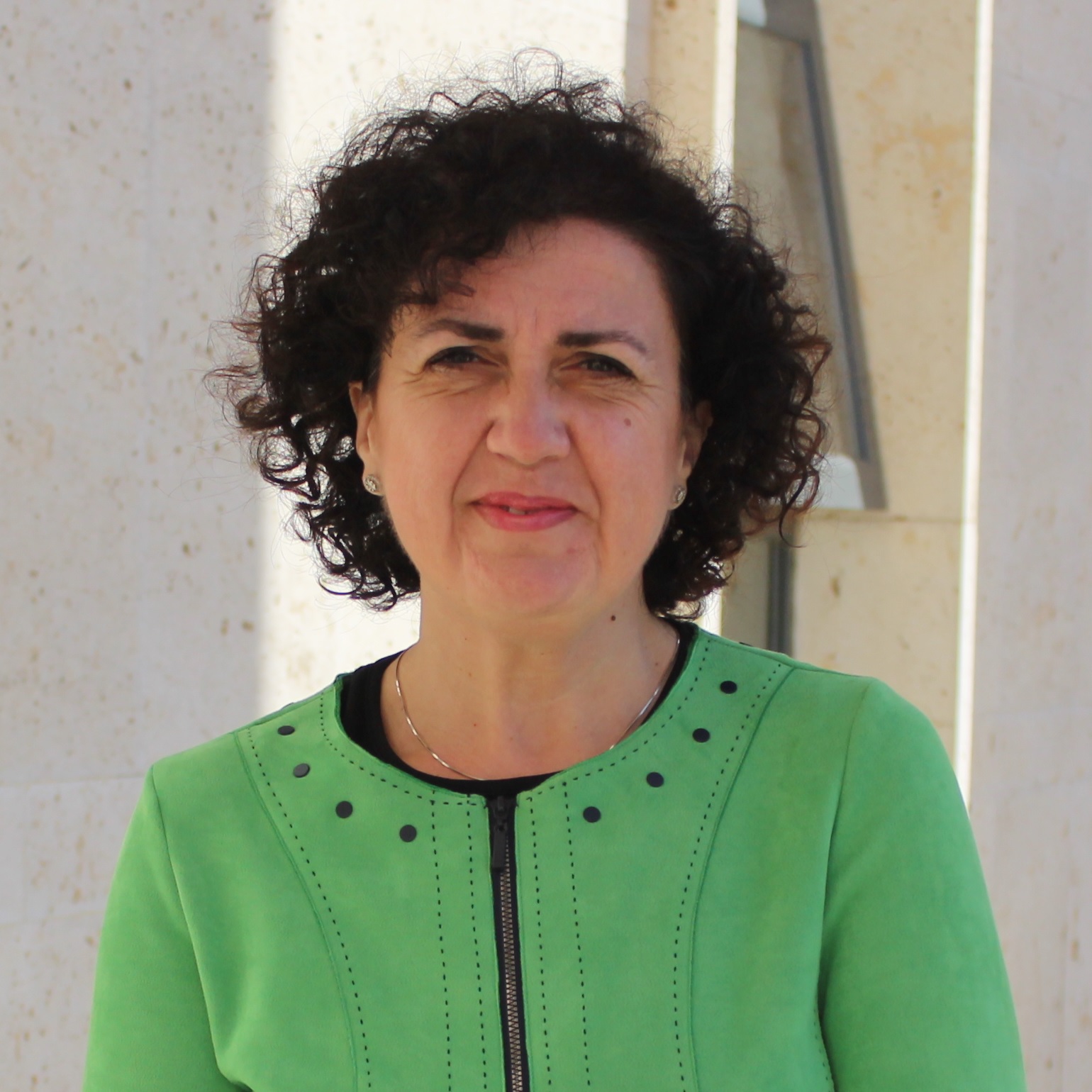
E-mail: This email address is being protected from spambots. You need JavaScript enabled to view it.
Telephone: (+34) 957 21 85 82
The functions of the Dean are the following (Art. 158 of the University of Córdoba by-laws, published in Andalusian Official Gazette no. 4, of 05/01/2018):
- To preside over and agree on the calls for the meetings of the Establishment Board, the Establishment Commissions and to set their meeting agendas.
- To execute and enforce the resolutions adopted by the Establishment Board.
- To communicate the members of the Establishment Board all agreements and all information within their concern.
- To direct and coordinate the activities of the Establishment in all the areas under their competence.
- To execute, within the scope of their competence, the Establishment's budget.
- To propose to the Rector the appointment of Vice-Deans or Assistant Directors, the Secretary of the Establishment and the Coordinators of the Degrees.
- To authorize, within the scope of their competencies, the events to be held at the Establishment.
- To steer the management of the Center's infrastructures and services.
- Any others as attributed to them by these by-laws or the provisions in force, informing, in any case, the Establishment Board.
Vice-Dean for Academic Planning and Coordination
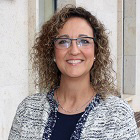 Dr. Ms. Mª Carmen Ruiz Roldán
Dr. Ms. Mª Carmen Ruiz Roldán
E-mail: This email address is being protected from spambots. You need JavaScript enabled to view it.
Telephone: (+34) 957 21 85 84
- Academic organization (schedules, exams and classrooms).
- Coordination of faculty and teaching activities.
- Organization of degree coordinators.
- Grade development and monitoring.
- Economic management of the establishment.
Vice-Dean for Quality, Teaching Innovation, Guidance and Employability
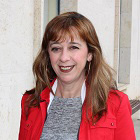 Dr. Ms. Mª Teresa García Martínez
Dr. Ms. Mª Teresa García Martínez
E-mail: This email address is being protected from spambots. You need JavaScript enabled to view it.
Telephone: (+34) 957 21 85 84
- Quality Assurance System.
- Student Internship Programme.
- Coordination of academic advisors.
- Academic information to students.
- Relations with the Student Council.
- Information and communication.
- Relations with schools.
- Organization of degree coordinators.
Vice-Dean for Mobility, Internationalization and Scientific Communication
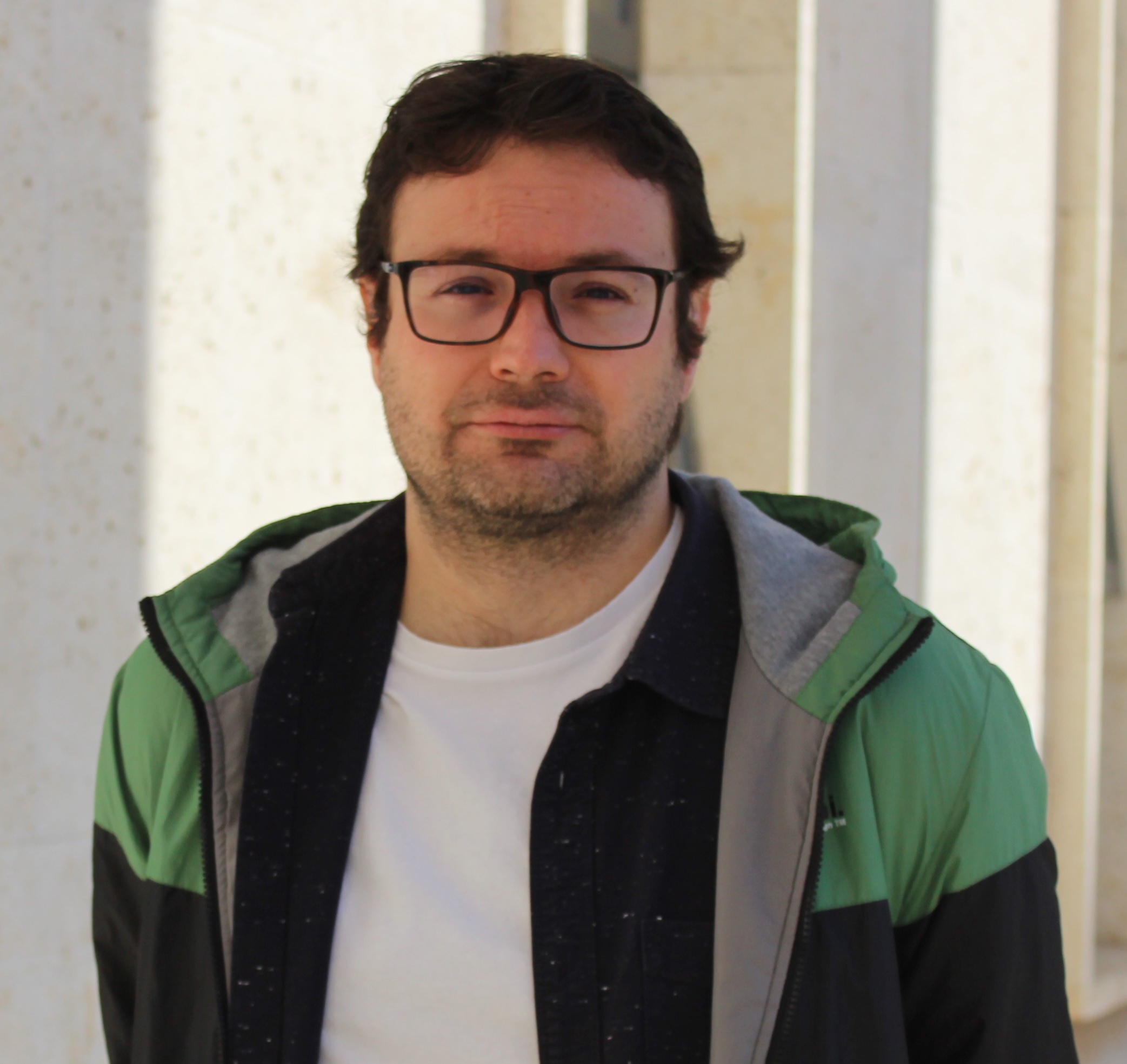
E-mail: This email address is being protected from spambots. You need JavaScript enabled to view it.
Telephone: (+34) 957 21 85 84
- Dissemination of the establishment's research activity.
- Programming of scientific conferences and seminars.
- International relations.
- Mobility programs with national and foreign universities.
- Management of academic recognition requests.
- Coordination of the selection and follow-up of mobility programs.
Academic Secretary
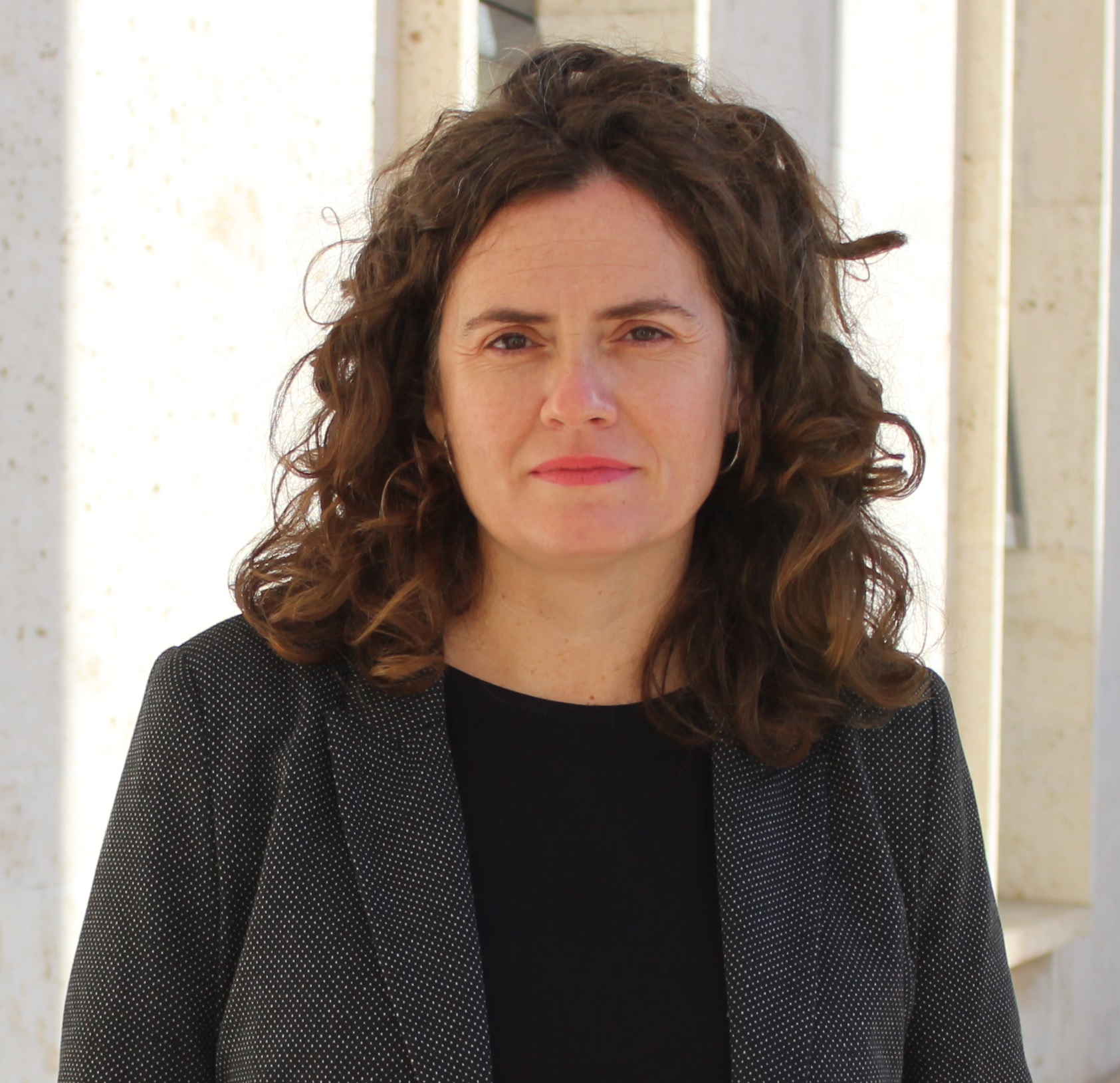
E-mail: This email address is being protected from spambots. You need JavaScript enabled to view it.
Telephone: (+34) 957 21 85 84
The functions of the Secretary of the Establishment are the following (Art. 166 of the University of Córdoba by-laws, published in Andalusian Official Gazette no. 4, of 05/01/2018):
- To manage the secretariat of the establishment, notwithstanding the fact that the technical and administrative functions correspond to the Establishment's Administration and Services Staff.
- To call, by order of the Dean, the meetings of the Board and the Commissions of the Establishment.
- To attest to the agreements and resolutions of the governing and representative bodies of the Establishment, as well as to any acts and facts witnessed in their capacity as Secretary or that may be recorded in minutes of the governing bodies of the Establishment and its Registry.
- To care for the development and custody of the minute books.
- To care for the custody of the documents of the establishment's archive, until their transfer to the corresponding archive.
- To guarantee the publicity of general resolutions of the different governing bodies of the Establishment. To this end, and without prejudice to its publication in the Official Gazette of the University of Córdoba, they shall maintain an orderly, updated and freely accessible database that includes the complete text of all the rules approved within the Establishment.
- To receive and keep custody of the examination reports, until they are transferred to the corresponding file.
- Co collaborate with the General Secretariat of the University of Córdoba in the maintenance and updating of its census.
- To perform any other functions entrusted to them.
Biology Coordinator
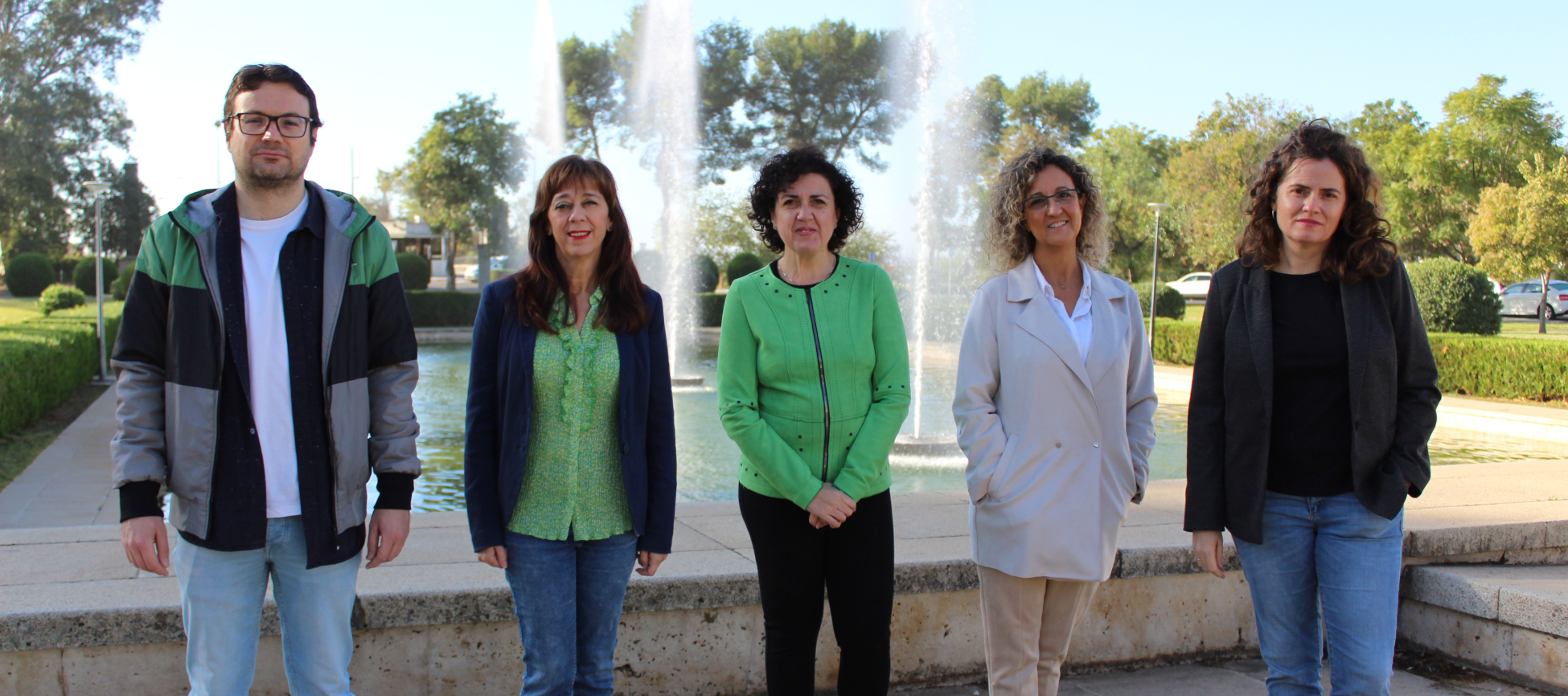
E-mail: This email address is being protected from spambots. You need JavaScript enabled to view it.
The functions of the Degree Coordinators (Art. 1 of the regulations on degree coordinators, Off. Gazz. of the Univ. of Córdoba of 25/06/2015) are as follows:
- To implement the necessary actions for the effective development of the degree.
- To put the necessary actions in place as to comply with the objectives proposed in the degree verification document. Among others:
- To oversee that student have a homogeneous and rational workload during the course that allows them to easily develop the on-site an off-site activities as assigned for each subject.
- To analyze the duration, time planning and adequate evaluation of learning activities proposed for the acquisition of competencies and their implementation in the development of the degree.
- To promote horizontal and vertical coordination between subjects, taking advantage of synergies in order to develop the specific competencies corresponding to subjects and modules.
- To participate in the programming of the teaching of the degree for the coordination of:
- Specific theoretical-practical contents to be taught in the different subjects.
- Evaluation methodologies.
- Activities to be carried out by the student, favouring transversal activities between different subjects.
- Participation in the process of preparing the annual teaching guides:
- By resolving issues the teaching staff may encounter in the completion of the teaching guides.
- By verifying that the contents of the different subjects do not present overlaps or gaps.
- By verifying that the workload assigned to students in each subject corresponds to the number of credits, through analyzing and coordinating a rational distribution of activities within each course and avoiding excessive workload whenever possible.
- By verifying that the coordination criteria proposed in each guide respond to those established in general at the establishment, degree and course levels.
- By analyzing the distribution of competencies among the different subjects and promoting synergies to allow for joint activities among them.
- By verifying the updates, publications and access of teaching guides in a timely manner.
- By assuming any other function as assigned by the Establishment's direction, within the scope of their competencies, in relation to the process of drafting, approval and publication of teaching guides.
- To promote the creation of teaching groups.
- To verify compliance with all sections of the teaching guide throughout the course, paying special attention to assessment methods and criteria, catering for part-time students and students with special needs, as well as compliance with deadlines for submission of minutes and grading validity deadlines.
- To collaborate with depertment directions in the resolution of conflicts that may arise in the normal development of teaching, holding capacity to make decisions on behalf of the direction of the establishment, if necessary.
- To coordinate the Tutorial Action Plan of the degree in close collaboration with advisors or tutors and mentors.
- To reinforce coordination actions through first-hand knowledge of the development of studies during the year. The Degree Coordinator shall establish periodic meetings with students, teachers, professors and academic advisors to monitor the development of the academic year and to drive coordination actions to resolve any issues that may be detected.
- To collaborate with the Quality Assurance Committee of degrees for the implementation and monitoring of its Quality Assurance System, since the QA system itself implies the evaluation of the teaching-learning process and competencies.
- To channel the training demands of the teaching staff in aspects related to the correct implementation of the degree. For instance: competence assessment, e-learning methodologies, tutoring, etc.
- The degree coordinator shall work under the instructions and guidelines of the Steering Committee and, in particular, the Dean. Likewise, by express invitation of the Dean of the Establishment, they may attend the meetings of the Steering Committee and represent the Direction of the Establishment when agreed in the areas of:
- Modification of the curriculum.
- Dissemination of the degree.
- Relations with graduates and professionals of the degree.
- Information activities for incoming students.
- Specific teaching innovation and continuous training actions for the teaching staff and students of a degree program.
- Any others related to teaching organization and coordination assigned by the Dean or the direction of the establishment.
- To prepare an annual report of coordination activities for the degree, to be submitted to the Direction of the Establishment before September 30th, containing, at least:
- Minutes of the periodic meetings held throughout the course with faculty, advisors and students.
- An evaluation of the teaching innovations implemented in the degree program.
- Training needs detected for the teaching staff of the degree.
- Assessment of the tutorial action programme.
- Assessment of the time coordination of academic activities within the subjects and students' workload.
- Work plan for the following year.
Biochemistry Coordinator
 Dr. Ms. Lara Paloma Sáez Melero
Dr. Ms. Lara Paloma Sáez Melero
E-mail: This email address is being protected from spambots. You need JavaScript enabled to view it.
The functions of the Degree Coordinators (Art. 1 of the regulations on degree coordinators, Off. Gazz. of the Univ. of Córdoba of 25/06/2015) are as follows:
- To implement the necessary actions for the effective development of the degree.
- To put the necessary actions in place as to comply with the objectives proposed in the degree verification document. Among others:
- To oversee that student have a homogeneous and rational workload during the course that allows them to easily develop the on-site an off-site activities as assigned for each subject.
- To analyze the duration, time planning and adequate evaluation of learning activities proposed for the acquisition of competencies and their implementation in the development of the degree.
- To promote horizontal and vertical coordination between subjects, taking advantage of synergies in order to develop the specific competencies corresponding to subjects and modules.
- To participate in the programming of the teaching of the degree for the coordination of:
- Specific theoretical-practical contents to be taught in the different subjects.
- Evaluation methodologies.
- Activities to be carried out by the student, favouring transversal activities between different subjects.
- Participation in the process of preparing the annual teaching guides:
- By resolving issues the teaching staff may encounter in the completion of the teaching guides.
- By verifying that the contents of the different subjects do not present overlaps or gaps.
- By verifying that the workload assigned to students in each subject corresponds to the number of credits, through analyzing and coordinating a rational distribution of activities within each course and avoiding excessive workload whenever possible.
- By verifying that the coordination criteria proposed in each guide respond to those established in general at the establishment, degree and course levels.
- By analyzing the distribution of competencies among the different subjects and promoting synergies to allow for joint activities among them.
- By verifying the updates, publications and access of teaching guides in a timely manner.
- By assuming any other function as assigned by the Establishment's direction, within the scope of their competencies, in relation to the process of drafting, approval and publication of teaching guides.
- To promote the creation of teaching groups.
- To verify compliance with all sections of the teaching guide throughout the course, paying special attention to assessment methods and criteria, catering for part-time students and students with special needs, as well as compliance with deadlines for submission of minutes and grading validity deadlines.
- To collaborate with depertment directions in the resolution of conflicts that may arise in the normal development of teaching, holding capacity to make decisions on behalf of the direction of the establishment, if necessary.
- To coordinate the Tutorial Action Plan of the degree in close collaboration with advisors or tutors and mentors.
- To reinforce coordination actions through first-hand knowledge of the development of studies during the year. The Degree Coordinator shall establish periodic meetings with students, teachers, professors and academic advisors to monitor the development of the academic year and to drive coordination actions to resolve any issues that may be detected.
- To collaborate with the Quality Assurance Committee of degrees for the implementation and monitoring of its Quality Assurance System, since the QA system itself implies the evaluation of the teaching-learning process and competencies.
- To channel the training demands of the teaching staff in aspects related to the correct implementation of the degree. For instance: competence assessment, e-learning methodologies, tutoring, etc.
- The degree coordinator shall work under the instructions and guidelines of the Steering Committee and, in particular, the Dean. Likewise, by express invitation of the Dean of the Establishment, they may attend the meetings of the Steering Committee and represent the Direction of the Establishment when agreed in the areas of:
- Modification of the curriculum.
- Dissemination of the degree.
- Relations with graduates and professionals of the degree.
- Information activities for incoming students.
- Specific teaching innovation and continuous training actions for the teaching staff and students of a degree program.
- Any others related to teaching organization and coordination assigned by the Dean or the direction of the establishment.
- To prepare an annual report of coordination activities for the degree, to be submitted to the Direction of the Establishment before September 30th, containing, at least:
- Minutes of the periodic meetings held throughout the course with faculty, advisors and students.
- An evaluation of the teaching innovations implemented in the degree program.
- Training needs detected for the teaching staff of the degree.
- Assessment of the tutorial action programme.
- Assessment of the time coordination of academic activities within the subjects and students' workload.
- Work plan for the following year.
Environmental Sciences Coordinator
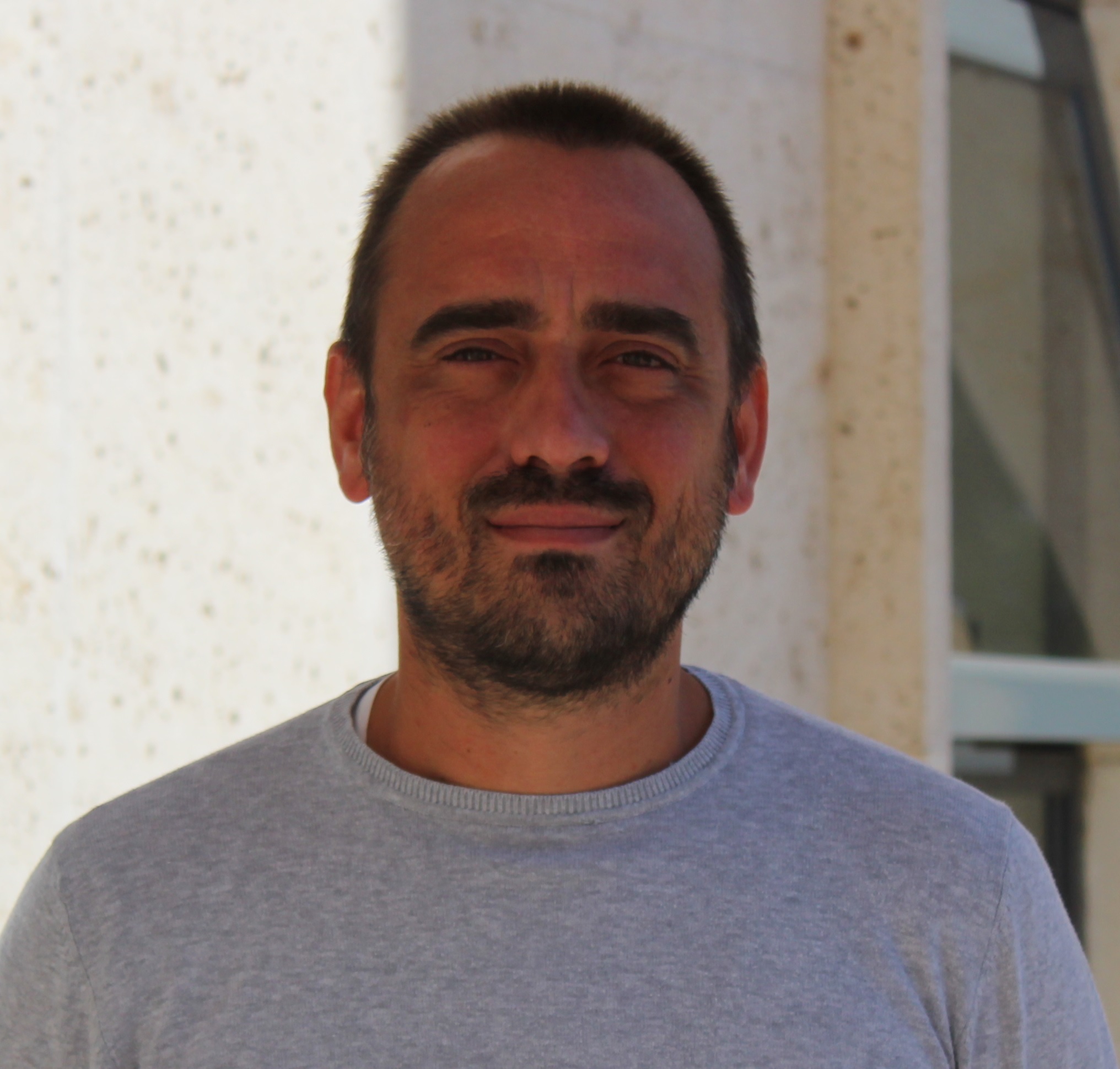
E-mail: This email address is being protected from spambots. You need JavaScript enabled to view it.
The functions of the Degree Coordinators (Art. 1 of the regulations on degree coordinators, Off. Gazz. of the Univ. of Córdoba of 25/06/2015) are as follows:
- To implement the necessary actions for the effective development of the degree.
- To put the necessary actions in place as to comply with the objectives proposed in the degree verification document. Among others:
- To oversee that student have a homogeneous and rational workload during the course that allows them to easily develop the on-site an off-site activities as assigned for each subject.
- To analyze the duration, time planning and adequate evaluation of learning activities proposed for the acquisition of competencies and their implementation in the development of the degree.
- To promote horizontal and vertical coordination between subjects, taking advantage of synergies in order to develop the specific competencies corresponding to subjects and modules.
- To participate in the programming of the teaching of the degree for the coordination of:
- Specific theoretical-practical contents to be taught in the different subjects.
- Evaluation methodologies.
- Activities to be carried out by the student, favouring transversal activities between different subjects.
- Participation in the process of preparing the annual teaching guides:
- By resolving issues the teaching staff may encounter in the completion of the teaching guides.
- By verifying that the contents of the different subjects do not present overlaps or gaps.
- By verifying that the workload assigned to students in each subject corresponds to the number of credits, through analyzing and coordinating a rational distribution of activities within each course and avoiding excessive workload whenever possible.
- By verifying that the coordination criteria proposed in each guide respond to those established in general at the establishment, degree and course levels.
- By analyzing the distribution of competencies among the different subjects and promoting synergies to allow for joint activities among them.
- By verifying the updates, publications and access of teaching guides in a timely manner.
- By assuming any other function as assigned by the Establishment's direction, within the scope of their competencies, in relation to the process of drafting, approval and publication of teaching guides.
- To promote the creation of teaching groups.
- To verify compliance with all sections of the teaching guide throughout the course, paying special attention to assessment methods and criteria, catering for part-time students and students with special needs, as well as compliance with deadlines for submission of minutes and grading validity deadlines.
- To collaborate with depertment directions in the resolution of conflicts that may arise in the normal development of teaching, holding capacity to make decisions on behalf of the direction of the establishment, if necessary.
- To coordinate the Tutorial Action Plan of the degree in close collaboration with advisors or tutors and mentors.
- To reinforce coordination actions through first-hand knowledge of the development of studies during the year. The Degree Coordinator shall establish periodic meetings with students, teachers, professors and academic advisors to monitor the development of the academic year and to drive coordination actions to resolve any issues that may be detected.
- To collaborate with the Quality Assurance Committee of degrees for the implementation and monitoring of its Quality Assurance System, since the QA system itself implies the evaluation of the teaching-learning process and competencies.
- To channel the training demands of the teaching staff in aspects related to the correct implementation of the degree. For instance: competence assessment, e-learning methodologies, tutoring, etc.
- The degree coordinator shall work under the instructions and guidelines of the Steering Committee and, in particular, the Dean. Likewise, by express invitation of the Dean of the Establishment, they may attend the meetings of the Steering Committee and represent the Direction of the Establishment when agreed in the areas of:
- Modification of the curriculum.
- Dissemination of the degree.
- Relations with graduates and professionals of the degree.
- Information activities for incoming students.
- Specific teaching innovation and continuous training actions for the teaching staff and students of a degree program.
- Any others related to teaching organization and coordination assigned by the Dean or the direction of the establishment.
- To prepare an annual report of coordination activities for the degree, to be submitted to the Direction of the Establishment before September 30th, containing, at least:
- Minutes of the periodic meetings held throughout the course with faculty, advisors and students.
- An evaluation of the teaching innovations implemented in the degree program.
- Training needs detected for the teaching staff of the degree.
- Assessment of the tutorial action programme.
- Assessment of the time coordination of academic activities within the subjects and students' workload.
- Work plan for the following year.
Physics Coordinator

E-mail: This email address is being protected from spambots. You need JavaScript enabled to view it.
The functions of the Degree Coordinators (Art. 1 of the regulations on degree coordinators, Off. Gazz. of the Univ. of Córdoba of 25/06/2015) are as follows:
- To implement the necessary actions for the effective development of the degree.
- To put the necessary actions in place as to comply with the objectives proposed in the degree verification document. Among others:
- To oversee that student have a homogeneous and rational workload during the course that allows them to easily develop the on-site an off-site activities as assigned for each subject.
- To analyze the duration, time planning and adequate evaluation of learning activities proposed for the acquisition of competencies and their implementation in the development of the degree.
- To promote horizontal and vertical coordination between subjects, taking advantage of synergies in order to develop the specific competencies corresponding to subjects and modules.
- To participate in the programming of the teaching of the degree for the coordination of:
- Specific theoretical-practical contents to be taught in the different subjects.
- Evaluation methodologies.
- Activities to be carried out by the student, favouring transversal activities between different subjects.
- Participation in the process of preparing the annual teaching guides:
- By resolving issues the teaching staff may encounter in the completion of the teaching guides.
- By verifying that the contents of the different subjects do not present overlaps or gaps.
- By verifying that the workload assigned to students in each subject corresponds to the number of credits, through analyzing and coordinating a rational distribution of activities within each course and avoiding excessive workload whenever possible.
- By verifying that the coordination criteria proposed in each guide respond to those established in general at the establishment, degree and course levels.
- By analyzing the distribution of competencies among the different subjects and promoting synergies to allow for joint activities among them.
- By verifying the updates, publications and access of teaching guides in a timely manner.
- By assuming any other function as assigned by the Establishment's direction, within the scope of their competencies, in relation to the process of drafting, approval and publication of teaching guides.
- To promote the creation of teaching groups.
- To verify compliance with all sections of the teaching guide throughout the course, paying special attention to assessment methods and criteria, catering for part-time students and students with special needs, as well as compliance with deadlines for submission of minutes and grading validity deadlines.
- To collaborate with depertment directions in the resolution of conflicts that may arise in the normal development of teaching, holding capacity to make decisions on behalf of the direction of the establishment, if necessary.
- To coordinate the Tutorial Action Plan of the degree in close collaboration with advisors or tutors and mentors.
- To reinforce coordination actions through first-hand knowledge of the development of studies during the year. The Degree Coordinator shall establish periodic meetings with students, teachers, professors and academic advisors to monitor the development of the academic year and to drive coordination actions to resolve any issues that may be detected.
- To collaborate with the Quality Assurance Committee of degrees for the implementation and monitoring of its Quality Assurance System, since the QA system itself implies the evaluation of the teaching-learning process and competencies.
- To channel the training demands of the teaching staff in aspects related to the correct implementation of the degree. For instance: competence assessment, e-learning methodologies, tutoring, etc.
- The degree coordinator shall work under the instructions and guidelines of the Steering Committee and, in particular, the Dean. Likewise, by express invitation of the Dean of the Establishment, they may attend the meetings of the Steering Committee and represent the Direction of the Establishment when agreed in the areas of:
- Modification of the curriculum.
- Dissemination of the degree.
- Relations with graduates and professionals of the degree.
- Information activities for incoming students.
- Specific teaching innovation and continuous training actions for the teaching staff and students of a degree program.
- Any others related to teaching organization and coordination assigned by the Dean or the direction of the establishment.
- To prepare an annual report of coordination activities for the degree, to be submitted to the Direction of the Establishment before September 30th, containing, at least:
- Minutes of the periodic meetings held throughout the course with faculty, advisors and students.
- An evaluation of the teaching innovations implemented in the degree program.
- Training needs detected for the teaching staff of the degree.
- Assessment of the tutorial action programme.
- Assessment of the time coordination of academic activities within the subjects and students' workload.
- Work plan for the following year.
Chemistry Coordinator
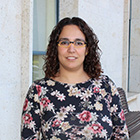 Dr. Ms. Inés María Santos Dueñas
Dr. Ms. Inés María Santos Dueñas
E-mail: This email address is being protected from spambots. You need JavaScript enabled to view it.
The functions of the Degree Coordinators (Art. 1 of the regulations on degree coordinators, Off. Gazz. of the Univ. of Córdoba of 25/06/2015) are as follows:
- To implement the necessary actions for the effective development of the degree.
- To put the necessary actions in place as to comply with the objectives proposed in the degree verification document. Among others:
- To oversee that student have a homogeneous and rational workload during the course that allows them to easily develop the on-site an off-site activities as assigned for each subject.
- To analyze the duration, time planning and adequate evaluation of learning activities proposed for the acquisition of competencies and their implementation in the development of the degree.
- To promote horizontal and vertical coordination between subjects, taking advantage of synergies in order to develop the specific competencies corresponding to subjects and modules.
- To participate in the programming of the teaching of the degree for the coordination of:
- Specific theoretical-practical contents to be taught in the different subjects.
- Evaluation methodologies.
- Activities to be carried out by the student, favouring transversal activities between different subjects.
- Participation in the process of preparing the annual teaching guides:
- By resolving issues the teaching staff may encounter in the completion of the teaching guides.
- By verifying that the contents of the different subjects do not present overlaps or gaps.
- By verifying that the workload assigned to students in each subject corresponds to the number of credits, through analyzing and coordinating a rational distribution of activities within each course and avoiding excessive workload whenever possible.
- By verifying that the coordination criteria proposed in each guide respond to those established in general at the establishment, degree and course levels.
- By analyzing the distribution of competencies among the different subjects and promoting synergies to allow for joint activities among them.
- By verifying the updates, publications and access of teaching guides in a timely manner.
- By assuming any other function as assigned by the Establishment's direction, within the scope of their competencies, in relation to the process of drafting, approval and publication of teaching guides.
- To promote the creation of teaching groups.
- To verify compliance with all sections of the teaching guide throughout the course, paying special attention to assessment methods and criteria, catering for part-time students and students with special needs, as well as compliance with deadlines for submission of minutes and grading validity deadlines.
- To collaborate with depertment directions in the resolution of conflicts that may arise in the normal development of teaching, holding capacity to make decisions on behalf of the direction of the establishment, if necessary.
- To coordinate the Tutorial Action Plan of the degree in close collaboration with advisors or tutors and mentors.
- To reinforce coordination actions through first-hand knowledge of the development of studies during the year. The Degree Coordinator shall establish periodic meetings with students, teachers, professors and academic advisors to monitor the development of the academic year and to drive coordination actions to resolve any issues that may be detected.
- To collaborate with the Quality Assurance Committee of degrees for the implementation and monitoring of its Quality Assurance System, since the QA system itself implies the evaluation of the teaching-learning process and competencies.
- To channel the training demands of the teaching staff in aspects related to the correct implementation of the degree. For instance: competence assessment, e-learning methodologies, tutoring, etc.
- The degree coordinator shall work under the instructions and guidelines of the Steering Committee and, in particular, the Dean. Likewise, by express invitation of the Dean of the Establishment, they may attend the meetings of the Steering Committee and represent the Direction of the Establishment when agreed in the areas of:
- Modification of the curriculum.
- Dissemination of the degree.
- Relations with graduates and professionals of the degree.
- Information activities for incoming students.
- Specific teaching innovation and continuous training actions for the teaching staff and students of a degree program.
- Any others related to teaching organization and coordination assigned by the Dean or the direction of the establishment.
- To prepare an annual report of coordination activities for the degree, to be submitted to the Direction of the Establishment before September 30th, containing, at least:
- Minutes of the periodic meetings held throughout the course with faculty, advisors and students.
- An evaluation of the teaching innovations implemented in the degree program.
- Training needs detected for the teaching staff of the degree.
- Assessment of the tutorial action programme.
- Assessment of the time coordination of academic activities within the subjects and students' workload.
- Work plan for the following year.

